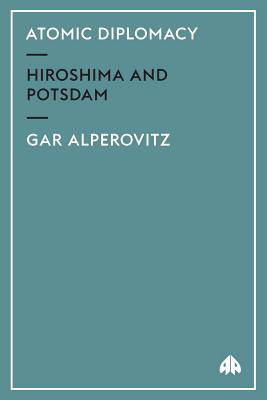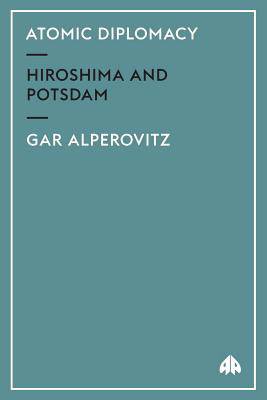
- Retrait gratuit dans votre magasin Club
- 7.000.000 titres dans notre catalogue
- Payer en toute sécurité
- Toujours un magasin près de chez vous
- Retrait gratuit dans votre magasin Club
- 7.000.0000 titres dans notre catalogue
- Payer en toute sécurité
- Toujours un magasin près de chez vous
Description
'A daring and elaborate work of historical reconstruction.' New York Review of Books
'Since its publication almost everyone who has written about the beginning of the atomic age has praised or denounced the book.' New York Times
'Tightly written and well presented [this seminal work] is very accessible.' Bob Hulteen, Sojourners (Canada)
'Atomic Diplomacy is a classic account of the use of the atomic bombs on Hiroshima and Nagasaki and its connections with America's confrontation with the Soviet Union. Fifty years after the destruction of Hiroshima and Nagasaki, it is more important than ever that we understand how political and military leaders make decisions about the use of nuclear weapons. Atomic Diplomacy is, therefore a timely book. It is also a very readable book, admirably researched. It should be essential reading for all politicians.' Medicine & War
Hailed as a classic on its first publication in the 1960s, Atomic Diplomacy, has now been reissued in a completely revised and expanded edition. Alperovitz provides important new evidence to support the thesis that the primary reason for bombing Hiroshima and Nagasaki was not to end the war in Japan, as was said at the time, but to 'make the Russians more manageable'. Drawing on recently released diaries and records of Truman, Eisenhower and others, Alperovitz reevaluates the assumptions, hesitations and decisions that precipitated the use of atomic weapons and traces how possession of the bomb changed American strategy toward the Soviet Union at the Potsdam Conference and helped to set it on a course that contributed to the swift beginning of the Cold War.
Most historians of the period now agree that diplomatic considerations related to the Soviet Union played a major role in the decision to use the bomb. Atomic Diplomacy pioneered this new understanding. Today we still live in Hiroshima's shadow; this path breaking work is timely and urgent reading for anyone interested in the history -- and future -- of peace and war.
Spécifications
Parties prenantes
- Auteur(s) :
- Editeur:
Contenu
- Nombre de pages :
- 414
- Langue:
- Anglais
Caractéristiques
- EAN:
- 9780745309477
- Date de parution :
- 20-11-94
- Format:
- Livre broché
- Format numérique:
- Trade paperback (VS)
- Dimensions :
- 153 mm x 234 mm
- Poids :
- 598 g

Les avis
Nous publions uniquement les avis qui respectent les conditions requises. Consultez nos conditions pour les avis.






